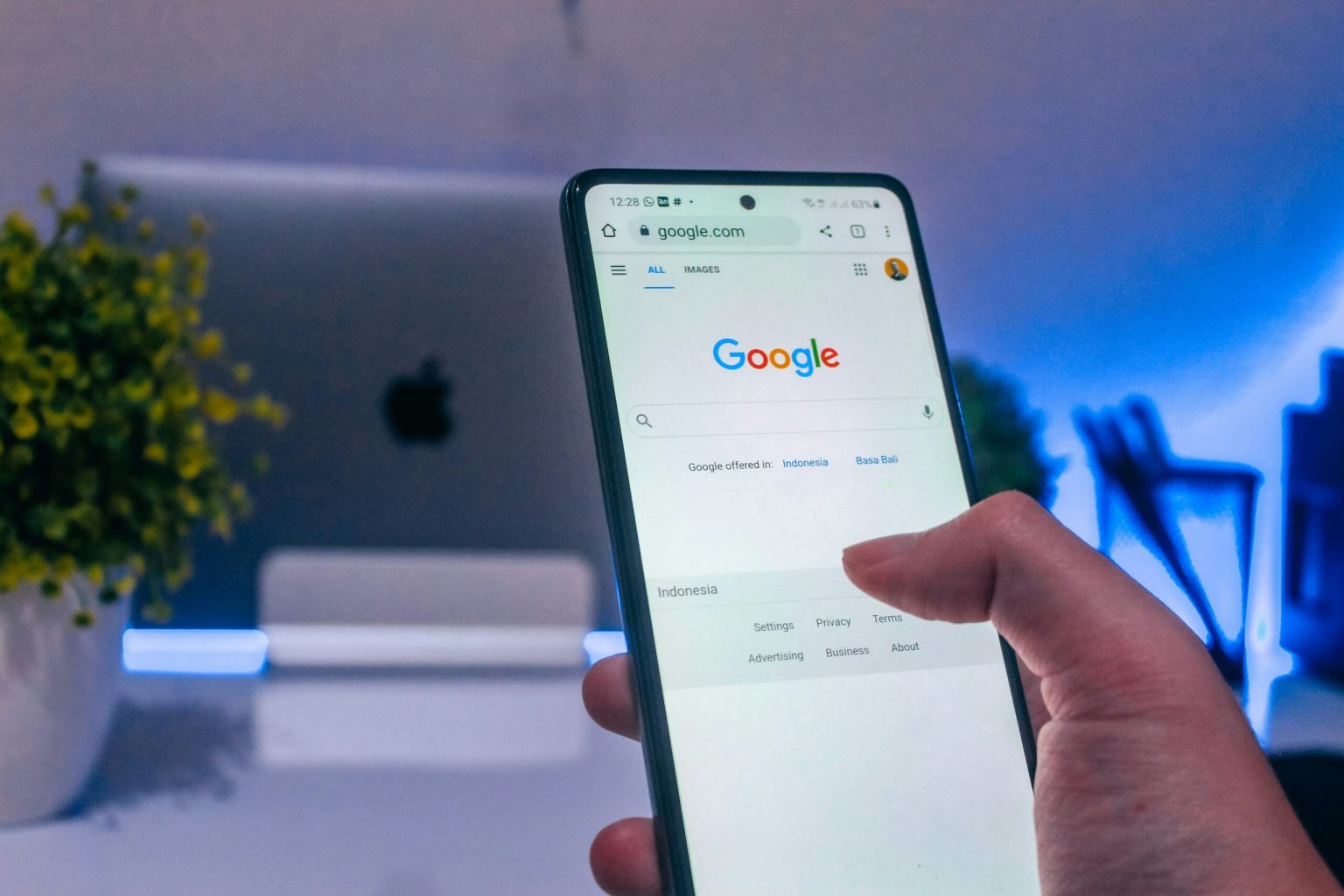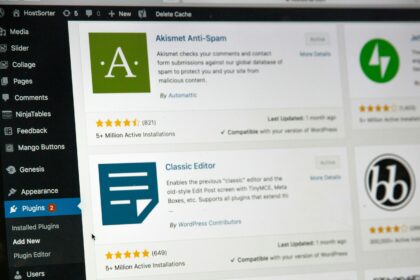Whether you’re a website owner, an e-commerce business, or a blogger looking to increase their overall traffic, there’s too much going on behind the scenes when it comes to SEO, Google, Bing, and everything that today’s optimization may include. But how do you fight the big guys? And how can you rank better than your competitors if they already win their place in Google’s results?
Like I’ve said many times in the past, a lot has changed in the last few years in SEO, yet nothing has really changed. Yes, Google and Bing are still trying to fight spam content, remove anything AI-related, and ban websites that are using illegal ways to increase their rankings.
But in the end, Google still says what they always said; “If you want to rank, create high-quality content”, and that’s where most people fail by over-optimizing their websites and seeing their content rank even lower than before.
Here’s what I’ve learned all of those years by optimizing more than 500 websites for SEO, what most of my clients did wrong, how they fixed everything, and how they started ranking higher with simple changes.
What is SEO overoptimization and why it’s important?
Simply put, SEO overoptimization happens when a website owner focuses so much on SEO-optimization and increasing their rankings in search results, that they forget to create high-quality content and improve user experience.
SEO overoptimization can mean a lot of other things though, but let’s organize them all into two crucial categories;
- The people who are using tools and services to improve their SEO rankings by using methods that Google is prohibiting.
- The people who are constantly making changes on a daily basis, trying to increase their rankings and positions and get as many do-follow backlinks as they can, without considering that their content is actually not that great.
There’s a reason bloggers/SEO experts are still charging lots of money when writing SEO-optimized content. That content doesn’t just include a couple of keywords and smart written titles, it’s created to solve people’s problems and answer their questions in the best possible way, and that’s what search engines are looking for.
Think about it; Both Google and Bing are visited by people who mainly want to ask questions. Both search engines need to provide the best results in order for the user to get the best experience yet, and to do that they need to find the highest quality content that does exactly that; Provide the right answer.
Apart from that, they will take into consideration many other factors, known as “signals”, which may be focused on your website’s speed, the backlinks it gets, the bounce rate that it has, and more.
If you overoptimize your website, instead of getting better rankings, you may see lots of your content losing positions. That’s because Google, Bing, and other search engines may see a website focusing more on search engines rather than providing great content to its audience, and that’s an issue.
Don’t be afraid of links
No-follow, UGC, sponsored, and sponsored link attributes exist for a specific reason, and Google has explained more about the nature of links. For example, you may be linking to a website with a no-follow link attribute for no specific reason, Google can easily bypass that and see where you’re linking if the [third-party] website has no SEO and quality issues.
The same also happens for the external backlinks that you’re getting from other websites. Take for example the official answer that Google’s John Mueller gave in a Reddit discussion to a Redditor asking:
“I’ve noticed a significant increase in spammy backlinks pointing to my website, and it’s negatively impacting my site’s search engine rankings and overall credibility. Despite my efforts, I’m struggling to effectively remove these spammy backlinks.”
In most cases, most website owners would expect Mueller to give instructions on blocking those links, avoiding getting more, or helping Google better understand which backlinks you actually want to matter for their algorithm, right? Wrong.
Here’s what Mueller answered:
The last sentence in Mueller’s reply, “Make sure your site is awesome instead of chasing those links”, is what took my mind off the original question and made me think that people are still worrying about silly things. Google is smarter than ever, and although not perfect, they’re improving their search algorithm with such great speed, adjusting it to better understand what to index and what not, what’s important and what’s not, and so on.
Quick Read: Link best practices for Google [official documentation].
Make sure you have the basics done right
Google’s John Mueller’s answer is just a simple – and yet another – example of why people should focus on creating and providing high-quality content, rather than worrying about what Google may think about simple things, such as low-quality external backlinks.
Google is smart, and so is Bing, so let their teams focus on what you’re doing best; Improving and making their algorithms smarter, and focus on what you do best; Creating high-quality content, an amazing user experience, and fast loading times.
But that doesn’t mean that you should do some basic SEO optimizations, as many of those optimizations will actually help your content rank even better. Some of them include keeping your website fast, submitting your sitemaps on Google’s Search Console and Bing’s Webmaster Tools, making sure you don’t have broken links, keeping your images in high quality, and whatever else may improve your audience’s experience whenever they visit your website.
I’ve created a great SEO Checklist that you can check out and make sure you’ve done anything that’s important for your content to rank better in search results. If you’ve done those basic optimizations, focusing on creating awesome content, as Mueller said, should be your top priority.
And hey, why not create a poll or an anonymous form and let your visitors tell you what they like and what they don’t about your website’s design, structure, and content? User feedback is crucial for everyone, from small blogs to big e-commerce stores, and you can get them for free!
Don’t buy backlinks, write guest posts instead
If Google and Bing are smart enough to understand when a link should be do-follow or no-follow, if it’s bad or not, and if they should count it for the ranking of a website, shouldn’t they also understand if a website is buying backlinks? They do, and a lot of times, they’re making sure that those websites will lose their rankings either immediately, or after a new algorithm update is released.
Writing guest posts and having your author’s information displayed on third-party websites is a great way to increase your referral traffic, and your name’s reputation in your field/niche, and get some high-quality backlinks from similar websites along the way. If there’s an active link to your author’s name or information, you won’t even have to insert it on your guest post, although you can.
But writing high-quality articles takes time, as you already know, and you should do the same research that you’re doing for your own content before sending them to get published on third-party websites. This is because if your guest posts aren’t good enough, they may get refused when reviewed by the owner’s website, and they won’t get as many clicks to bring new visitors both to the third-party website and your own.
Tip: Do the same research and write the same high-quality content that you would for your own blog, but follow their [whoever you’re writing for] ways of structuring and styling their blog posts, making sure their visitors get the same experience as they always get, but this time with a taste of your own unique voice.
Let’s say you’re a blogger, and you’re looking at writing some guest posts. Instead of writing for various blogs that have nothing to do with your content, focus on finding similar blogs that share the same topics and niche. This way, you’re making sure that the time you’re investing in writing those guest posts will not go to waste and end up in the wrong audience.
Stop following third-party SEO Tips and read Google’s SEO Starter Guide instead
I’ve seen many articles get things totally wrong in my lifetime, and many bloggers make mistakes because they thought it was a great idea to write for a topic they have limited knowledge of. And that’s where things go wrong, with lots of people hiring me to fix the unfixable.
They strictly follow whatever advice or tips they find on third-party websites, forgetting that anyone can start a blog nowadays and write whatever they want.
You should always research a website that you constantly read, what others saying about its content, and if the author is an expert in this field/niche before proceeding with any of the advice they give through their SEO guides. Yes, even for this article.
Google actually has created a Search Engine Optimization (SEO) Starter Guide that any website owner should absolutely read and understand. You should also read Google’s Search Essentials, which provides useful information on how what makes your content get indexed, appear, and perform well on Google’s search results.
Conclusion: Focus on content rather on search engines
Google has repeatedly said that content creators should always focus on creating high-quality content and improving the user experience on their websites.
Instead of overoptimizing your website, make sure your content is awesome, as Mueller said in its Reddit reply, and try to improve the experience of your audience by answering their questions, creating well-researched and informed articles, and improving the overall speed.
Have you been making the same mistakes as many other content creators when it comes to overoptimizing your website and content? And if so, what changes did you make to correct your mistakes and increase your rankings again? I’d love to hear your thoughts and experiences in the comment section at the end of this post.


















